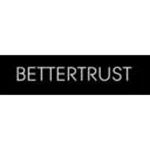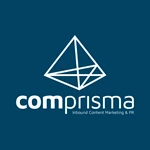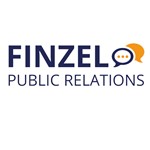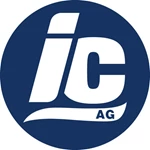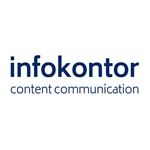List of the Best Public Relations (PR) Agencies
Are you looking for the best for your upcoming project? We have a list of 1,493 Public Relations (PR) Companies. This list contains matching case studies and references, 7,040 customer reviews, hourly rates, team size and much more. Use the appropriate filter options to find the best for your business requirements.
-
-
-
-
-
-
-
-
-
-
-
-
Do you need help finding your service provider? We are happy to help you!
Our industry experts will identify the best agencies for your needs, compare their offers and enable you to start a successful project. -
-
-
-
-
-
-
-
-
In just 3 easy steps to the perfect service provider!
Guaranteed free of charge and without obligation!Reach out directly. 100% free of charge and with no obligation.
Discuss your requirements with our experts in just 10 minutes.

Our experts select top applications, saving you valuable time!

Compare Top Public Relations (PR) Companies - Guide and Category Winners
In the world of business strategies and decisions, choosing a competent is a key element for growth and success. Feedbax provides a crucial platform to efficiently compare, engage and evaluate Public Relations (PR) Companies. With an extensive collection of over 7,040 customer reviews, Feedbax provides a deep insight into the performance of providers. This platform makes your search for the ideal much easier, with a focus on the most competent, best-rated and attractively priced companies.
To get an overview of the diverse range of Public Relations (PR) Companies on Feedbax: Currently, about 1,493 Public Relations (PR) Companies are currently rated. This company offers its services to a wide range of clients, from well-known companies such as and to smaller businesses. The industries in which it operates range from Consulting and Consumer Goods and Trade to Health and Social and Banking and Financial Services.
Below we present the winner in various categories to help you in your search for a provider:
Feedbax provides a detailed platform to evaluate and select leading Public Relations (PR) Companies based on customer feedback, ratings and key metrics. It covers a variety of needs, including different budgets and focus areas, and helps you find the best for the growth of your business. Regardless of the size of your business, from start-ups to large corporations, Feedbax provides you with the insights you need to find the that can best deliver your specific project requirements within your budget.
Best Rated
If you are looking for the best , there are a few companies you should look into. They are known for doing excellent work and satisfying their customers. Currently, there are 591 Public Relations (PR) Companies that have a total of 3,201 Top reviews - 5 out of 5 stars. Remember, these are just some of the best. You can find more Top Public Relations (PR) Companies by using the sort and filter functions to see more options.
The top rated :
|
Rank
|
Company
|
Rating
|
Reviews
|
Minimum Budget
|
Size
|
|---|---|---|---|---|---|
| 1. | OMB AG | 5.0 | 124 | - | 11-50 |
| 2. | Industrie-Contact AG | 5.0 | 18 | > 1,000 € | 11-50 |
| 3. | comprisma GmbH | 5.0 | 2 | > 1,000 € | 2-10 |
| 4. | MiU24® KG | Digital- & Handelsgesellschaft | 4.8 | 13 | > 1,000 € | 2-10 |
| 5. | Bettertrust GmbH | 4.7 | 48 | - | 11-50 |
1. OMB AG
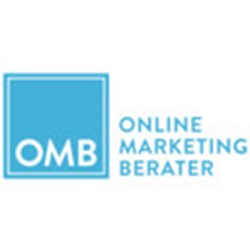
- 2012
- 11-50 Employees
What clients say about OMB AG
| Review | Quality | Planning | Costs | Overall | Recommendation |
|---|---|---|---|---|---|
After a friendly cold call, I received a call from Mr. Decker, who explained to me very well in the introduction what OMB AG can do and formulated clear statements on optimization possibilities for my web presence in two further consultation appointments. I felt well advised all around, Mr. Decker is a very pleasant conversation partner, not a "sales pusher". The offer he made me, which was adjusted once again in my favor, I feel is very fair! Thank you!Thomas Küchler |
-
|
-
|
-
|
5.0
Stars
|
|
We have been working with OMB AG for several years in the area of SEO optimization of our internet presence. The cooperation was very professional and pleasant from the beginning. Our contact person Mr. Engelmeier is extremely friendly and competent and supports us in all questions and concerns. For particularly challenging issues, various optimization paths are explored and implemented in an interdisciplinary manner with colleagues from other areas. We appreciate the cooperation very much and can therefore absolutely recommend OMB AG.BAUMAX Maschinentechnik GmbH |
-
|
-
|
-
|
5.0
Stars
|
|
I am a student and have been working as a student trainee at OMB AG as a Social Media Manager for almost a year. I am more than happy to be able to call OMB AG my employer. The flexible working hours, the employees and above all the locations in Würzburg and Frankfurt are very nice. I also have flexible home office options, which is an important point of reference, especially for students. I would recommend OMB AG to anyone! Whether as an intern, working student or as a full-time job.Charlotte Bernhard |
-
|
-
|
-
|
5.0
Stars
|
2. Industrie-Contact AG
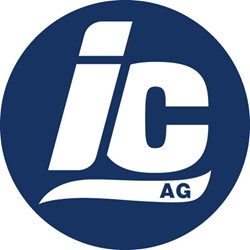
- 1979
- 11-50 Employees
- > 1,000 €
- 150 € - 199 €
What clients say about Industrie-Contact AG
| Review | Quality | Planning | Costs | Overall | Recommendation |
|---|---|---|---|---|---|
When it comes to partnership, responsiveness and results in Germany or even across Europe, Industrie-Contact is the agency to choose. I have had a long history with the firm and its impressive leader Uwe Schmidt. We have introduced new products and companies together. Thank you I-C for being there for me when I needed you. Ed Stevens, APR, Chairman Emeritus, SSC. a division of Roop & Co.Ed Stevens |
-
|
-
|
-
|
5.0
Stars
|
|
I did my internship at IC during my studies and have now started my traineeship at the agency. Insights into everyday work and current trends in the field of public relations are offered. During my time at IC, I was able to learn a lot from the competent and experienced team. I can definitely recommend IC!Wiebke Hinsch |
-
|
-
|
-
|
5.0
Stars
|
|
Following my internship, I took on a student trainee position and have already been working at IC for two years this year. I have already been able to learn a lot through the varied work in an experienced team. I can recommend IC as a very competent agency in the PR and PA sector that always stands by its partners.Lara Bolte |
-
|
-
|
-
|
5.0
Stars
|
3. comprisma GmbH
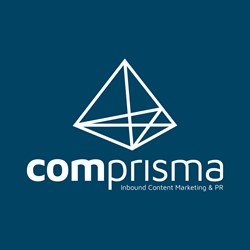
- 2012
- 2-10 Employees
- > 1,000 €
- 100 € - 149 €
- die Bayerische, Pearson Deutschland, Deutsches Theater München, lunii, Deejo
What clients say about comprisma GmbH
| Review | Quality | Planning | Costs | Overall | Recommendation |
|---|---|---|---|---|---|
The quality and time that Mr. Berensmann took to advise and design my website was exceptional and extremely positive. I felt understood and taken care of. I am very, very satisfied with the visual implementation, the content and the photos. I absolutely find myself as a personality and with my offer. I am thrilled.Anke M. |
5.0
Stars
|
-
|
-
|
5.0
Stars
|
|
I have been working with Mr. Berensmann's agency for a year now and I feel that I am in very good hands. The creativity and quality of this team is really very good! The cooperation is on an equal footing and even when problems or project changes occur, there is understanding and the necessary flexibility. 2020 was not easy but we were still able to implement every project and that is largely due to Comprisma and Mr. Berensmann. I hope to work with them for a very long time.Stefan L. |
5.0
Stars
|
-
|
-
|
5.0
Stars
|
|
Why do we have the best agency at our side with comprisma? Because our contacts are always there for us, work with us to develop and evaluate ideas and deliver absolutely fantastic results. You can rely on "really good content & PR" - and if something does go wrong, everything is solved in no time at all. A real all-round carefree package.Vanessa B. |
5.0
Stars
|
-
|
-
|
5.0
Stars
|
4. MiU24® KG | Digital- & Handelsgesellschaft
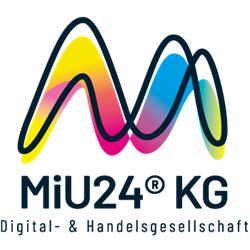
- 2009
- 2-10 Employees
- > 1,000 €
- 75 € - 99 €
- MB-BRASSEN
What clients say about MiU24® KG | Digital- & Handelsgesellschaft
| Review | Quality | Planning | Costs | Overall | Recommendation |
|---|---|---|---|---|---|
A clear recommendation from me! I recently had the pleasure of meeting Jürgen La-Greca (Managing Director MIU24) and Marco La-Greca (Shareholder MIU24). I myself deal a lot with the topic of advertising and marketing but could learn a lot from these two gentlemen - great! Jürgen and Marco are very approachable and open people and are up for any fun. With their concept of joy in the work and friendly cooperation with customers, the two run with me open doors - super relationship more very much knowledge and expertise! - "Knowledge is power." They offer not only small projects, but the complete advertising and marketing apparatus. Whether it is about websites, market strategies, creative advertising, banner advertising, designs themselves, short-term or long-term actions, the two help wherever possible. In addition, they have developed their own concepts, which have completely amazed me. Great respect and keep it up! -- P.S. as a GLS parcel station MIU24 is completely suitable. Very reliable and the employees are extremely courteous and friendly. Such a nice thing has really rarely happened to me to this extent. THANK YOU also for this!Local Guide |
-
|
-
|
-
|
5.0
Stars
|
|
Super service and always very helpful. A creative and fun troop with which the work is always fun, even after work. We have already implemented many projects together and many more will follow in the future. Great that so many different marketing modules can be implemented, from store, to SEO, to business card, to product photography. Thank you and keep up the good work!Sonia N. |
-
|
-
|
-
|
5.0
Stars
|
|
This agency not only says they do things differently and approach tasks differently, they do it! Refreshing and honest characters, real doers and PR professionals. Anyone who has had bad experiences with other "conventional" agencies will love Miu24. Here the client gets measurable attention for his company and his brand - extraordinary and authentic.Sebastian Flat |
-
|
-
|
-
|
5.0
Stars
|
5. Bettertrust GmbH

- 2007
- 11-50 Employees
What clients say about Bettertrust GmbH
| Review | Quality | Planning | Costs | Overall | Recommendation |
|---|---|---|---|---|---|
Great service, professional advice and competent staff. Highly recommended! Through professional advice and creative proposals has helped us a lot to appear more present in the media. The staff involved gave professional advice and gained my trust. This agency stands out from others precisely because of this.CEO & Founder Polsino GmbH |
5.0
Stars
|
5.0
Stars
|
5.0
Stars
|
5.0
Stars
|
|
I love it! You are so precious!!! I love working with the guys at Bettertrust, it's a real pleasure. Every single person I've had on the call or in the meeting so far has stood out for their professionalism. It's a great team, I'm particularly impressed by the great media expertise.What can I say, strong PR team, media expertise, strong personalities, conscientious work, fast and effective cooperation, proactive action, indispensable partner. Simply terrific, unfortunately only 5 stars go here, which by far do not express how much I am satisfied with you. The tone is so cordial and I look forward to everything that we still move together! Thank you for you in my life, I recommend you with all my heart. Best regards Steffi Christian Date of experience: 03. November 2022Steffi Christian |
-
|
-
|
-
|
5.0
Stars
|
|
We have been working very successfully with Bettertrust for some time now. In these months, the reliable and creative advice has become an integral part of our communication and has become indispensable for our PR success. The team is competent, proactive and always on the lookout for new stories for us. Not least thanks to their extensive media expertise, we feel that we have received excellent and perfect advice all round and can only recommend Bettertrust to every company.Marc |
-
|
-
|
-
|
5.0
Stars
|
Best Rated in the DACH region
There are currently 590 Public Relations (PR) Companies in the DACH region that have a total of 3,109 Top reviews - 5 out of 5 stars. Remember, these are just some of the best. You can find more Top Public Relations (PR) Companies by using the sort and filter functions to see more options.
The top rated in the DACH region:
|
Rank
|
Company
|
Rating
|
Reviews
|
Minimum Budget
|
Hour Rate
|
Size
|
|---|---|---|---|---|---|---|
| 1. | OMB AG | 5.0 | 124 | - | - | 11-50 |
| 2. | Industrie-Contact AG | 5.0 | 18 | > 1,000 € | 150 € - 199 € | 11-50 |
| 3. | comprisma GmbH | 5.0 | 2 | > 1,000 € | 100 € - 149 € | 2-10 |
| 4. | MiU24® KG | Digital- & Handelsgesellschaft | 4.8 | 13 | > 1,000 € | 75 € - 99 € | 2-10 |
| 5. | Bettertrust GmbH | 4.7 | 48 | - | - | 11-50 |
Public Relations (PR) Companies with matching case studies
When searching for the ideal , you should make sure that the respective service provider has already successfully completed and documented similar projects. You can find this proof on our platform in the form of case studies.
A case study is a detailed examination of a real project that uses digital technologies to improve business processes. It contains background information, objectives, implementation details, results and conclusions of the project. The aim is to learn from the experiences and results of the project and gain insights for similar projects.In order to provide you with the necessary transparency, you will find top Public Relations (PR) Companies with suitable case studies below.The best Public Relations (PR) Companies, sorted by the number of relevant case studies:
|
Rank
|
Company
|
Case Studies
|
Rating
|
Minimum Budget
|
Size
|
|---|---|---|---|---|---|
| 1. | Finzel Public Relations, S.L. | 3 | 0.0 | > 1,000 € | 2-10 |
| 2. | Astral Studios | 1 | 0.0 | > 5,000 € | 11-50 |
Case Study by Finzel Public Relations, S.L.

- QNAP
- Public Relations
- Media Relations, Product PR
Description
5 years as PR and media relations agency in Spain for Taiwanese manufacturer of NAS servers for homes, SoHo, SMEs and Enterprises.
Challenge
Build up and consolidate brand awareness in the local market whilst taking share-of-noise away from the client's main competitor who was already well established and active in PR.
Solution
- Distribution of product press releases to consumer and business tech media and blogs
- Research, development and management of product review opportunities with key media
- Management of readers competition promotional opportunities
- Support at trade shows and B2B events
Results
- 1350 clippings in media in total over the 5 years (22 per month on average)
- 170 product reviews published (over 30 per year)
- 70 media awards (nearly 15 per year)
Case Study by Astral Studios
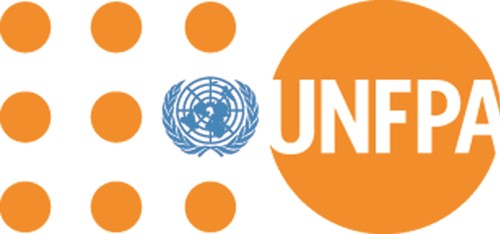
- Kenya UNFPA Harmful Practices Innovation Summit Oct 2023
- UNFPA
- Public Relations
- Corporate Communications
Description
Astral Studios has successfully marketed, coordinated and produced and facilitated hybrid and virtual events (inclusive of design of numerous event assets) for several UNFPA and JP UNFPA-UNICEF projects. Herewith a few, namely ESARO ESA YPT commitment 11-12Oct21; ESARO SYP launch & Meeting 22-24Nov21; FGM Hacklab 7 Dec21; CSW 66_22March22; ESARO SWOP Launch 23June22. These hybrid events were successfully managed on the ground, and live streamed from Johannesburg to an international audience.
We have also provided rapporteur and report writing services, produced several strategic PR, marketing and communication assets, numerous graphic designs, animations, photography, awareness and outreach videos, promos, media interviews, documentaries, branding, social media content, for their various events inclusive of the UNFPA-UNICEF JP Elimination of FGM Highlights 2021 and the JP Annual Consultation Oct 22, the Kenya UNFPA Harmful Practices Innovation Summit Oct 2023.
We have provided prompt and efficient round the clock service. Our track record so far informs UNFPA-UNICEF plans to engage them us on their our upcoming events in, commemorating the International Day of Zero Tolerance for FGM and and many others.
Challenge
Our biggest challenge for the Kenya UNFPA Harmful Practices Innovation Summit Oct 2023 was the 2-week deadline to create all the marketing and branding collateral - banners, digital invites, videos, animations, social media message and various other designs and planning all the logistics for hosting a hybrid event in Kenya - including getting AV crew (including securing visas) and gear onsite - ALL within 2 weeks production time
Solution
Pull all resources together and manage - event manager, graphic designers, animators, editors, virtual technicians, AV and IT technicians, printers, videographers, photographers.
Results
hosted a very successful 4-day hybrid event in Kenya - with full onsite AV and virtual setup - and created all all the marketing and branding collateral and delivered on time to the venue.
How do I find Public Relations (PR) Companies?
Feedbax is happy to help you with your provider search to find the most suitable service provider for you. There are several options for this.
Option 1: Search through this provider directory. You will find many helpful customer reviews and can create your own shortlist.
Option 2: Our industry experts will evaluate your project requirements and identify the best providers for you. This service is 100% free of charge and without obligation.

